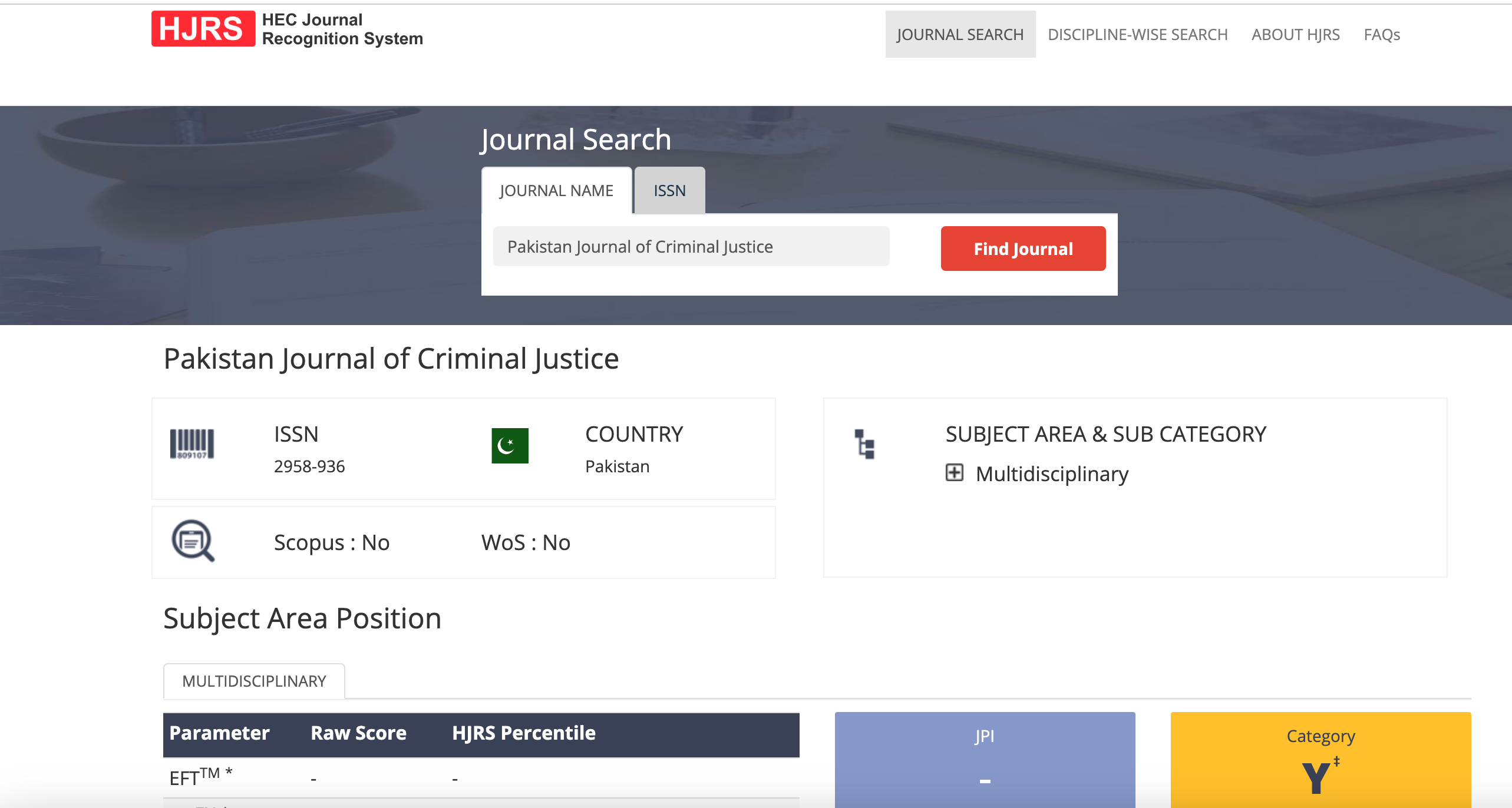An Analysis of the Role of Forensic Evidence from the Commission of Offence to the Trial
DOI:
https://doi.org/10.62585/pjcj.v4i2.98Keywords:
forensic evidence, offence, criminal tiral, fair trial, investigationAbstract
Forensic evidence in Pakistan’s criminal justice system is the point of focus in this study to harmonize legal frameworks, enhancing the effectiveness of evidence management and sufficiency of procedural guidelines. This involves research adopting quantitative methodology and involving 50 professionals from five different sectors – judges, lawyers, public prosecutors, healthcare professionals and police officers. This survey indicates that there is consensus that forensic evidence management maintains integrity and provides fair trials whereby 40-80% recognize well-preserved forensic samples while maintaining strict chain of custody protocols. However, some doubts arise as concerns the adequacy of healthcare staff training and clarity in collecting such proofs. These include the Qanun-e-Shahadat Ordinance 1984, Criminal Procedure Code (Cr.P.C.) 1898, Punjab Forensic Science Agency Act 2007; Prevention of Electronic Crimes Act (PECA) 2016 is comprehensive legal frameworks for enabling forensic science which have been challenged during the implementation. Suggestions include better training programs for forensic experts, providing clearness and uniformity within evidencing procedures along improving infrastructure related to forensics throughout Pakistan. Reliability and fairness in the criminal justice system depend on these measures being taken.
Downloads
Published
How to Cite
Issue
Section
License
Copyright (c) 2024 Khurram Baig, Muhammad Saqib Hameed

This work is licensed under a Creative Commons Attribution-NonCommercial 4.0 International License.





